The early Christians were considered weird for many reasons—worship of a crucified man, the gospel’s exclusive claims, ethical demands that included one’s sexuality, and more. But here’s a distinctive that might surprise you: the early church was marked by its “bookish” religion.
According to the late New Testament scholar Larry Hurtado (1943–2019), Christianity stood out—and thrived—in part because of its attention to reading and books. No matter that not everyone had the ability to read; it just took one person in a group who could read aloud. “Whether they were able to read for themselves or not,” Hurtado explains in Destroyer of the gods: Early Christian Distinctiveness in the Roman World, “Christians were able to obtain an acquaintance with the texts read out in their corporate worship gatherings. Romantic notions of a pervasive early Christian ‘orality’ that left little room or need for texts all rest on a body of ill-informed assumptions.”
This love of reading bled over into a commitment to the written word. From the apostolic letters in the Bible to non-inspired Christian texts meant to inform, defend, or edify believers in the Roman world, the early church stood out for its attention to books and words. Again, Hurtado explains: “[E]arly Christianity was phenomenally prolific and varied in literary output. . . . [T]here is simply no analogy for this variety, vigor, and volume in Christian literary output.” They were a bookish people.
From the early church to the Reformation to today, Christians have been a bookish people. This is no sanctified nerdiness. It stems from an abiding commitment to the Book—God’s Spirit-breathed words to his people (2 Tim. 3:16)—and to the written word.
So it shouldn’t surprise that between our academic journal Themelios and our regular book reviews section, we at The Gospel Coalition review nearly 300 books per year. And at the end of each year we take stock of the most helpful titles across various categories, using the following fourfold criteria:
- offers gospel-centered argument and application;
- includes faithful and foundational use of Scripture, both Old Testament and New Testament;
- fosters spiritual discernment of contemporary trials and trends; and
- encourages efforts to unite and renew the church.
We have so much to thank the Lord for as look back over the past year. Make sure to pick up a book or two from the list below. And as you prepare for 2020, subscribe to TGC’s monthly books newsletter for regular updates and reading recommendations.
We’re a bookish people. No shame in that.
Congratulations to the winners of our The Gospel Coalition 2019 Book Awards.
Public Theology & Current Events
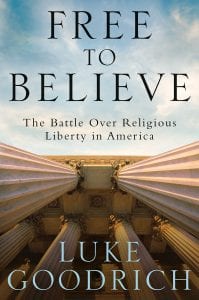 Luke Goodrich, Free to Believe: The Battle Over Religious Liberty in America (Multnomah)
Luke Goodrich, Free to Believe: The Battle Over Religious Liberty in America (Multnomah)
“Our culture is changing. Religious freedom is not as secure as it once was. And the church is unprepared,” says Luke Goodrich, an attorney with the Becket Fund for Religious Liberty. “What can we do about it?” Goodrich helps the church understand what religious freedom is, why it ought to be extended to all faiths, and how we can prepare for the challenges to come. Although the book is brief (less than 200 pages), Goodrich covers the issue from a number of angles, including providing a theology of religious freedom and explaining how we apply it to five key issues: religious discrimination, abortion rights, LGBT rights, Islam, and the public square. This is one of the single best treatments of religious liberty to be found today.
Judges: Joe Carter, Vermon Pierre, Jacqueline Isaacs, Bruce Ashford
Popular Theology
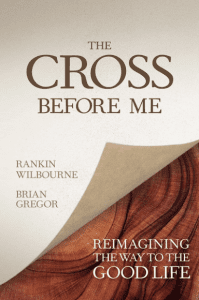 Rankin Wilbourne and Brian Gregor, The Cross Before Me: Reimagining the Way to the Good Life (David C. Cook)
Rankin Wilbourne and Brian Gregor, The Cross Before Me: Reimagining the Way to the Good Life (David C. Cook)
“Our culture is having a wisdom contest,” Rankin Wilbourne and Brian Gregor observe, “about what makes for a fully human life and how we can be happy.” Their book enters the fray with “an unheralded opinion, a minority report”: cross-shaped living is the secret to human thriving. The pastor-philosopher team’s thesis is as simple as it is counterintuitive: Happiness is communion with God. And the way to that communion is the way of the cross. “If the first half of our thesis is unheralded,” they observe, “then the second half is almost unheard of.” Their book, in many ways, is an extended reflection on one sentence from Jesus: “Whoever finds his life will lose it, and whoever loses his life for my sake will find it” (Matt. 10:39). Drawing from a wide range of ancient and modern insights to buttress their case, Wilbourne and Gregor drive readers relentlessly to the gospel and invite us to find our lives by losing them.
Judges: Matt Smethurst, John Onwuchekwa, Rebecca McLaughlin, Juan Sánchez
Academic Theology
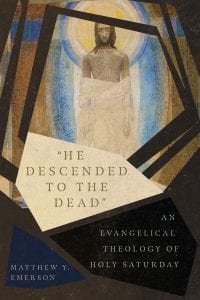 Matthew Y. Emerson, ‘He Descended to the Dead’: An Evangelical Theology of Holy Saturday (IVP Academic)
Matthew Y. Emerson, ‘He Descended to the Dead’: An Evangelical Theology of Holy Saturday (IVP Academic)
What did Jesus do immediately after crying “It is finished” and breathing his last? How should evangelicals feel about confessing, with the Apostles’ Creed, that he “descended into hell”? And how does Jesus’s time “in the heart of the earth” (Matt. 12:40) help us face death? Matthew Emerson has brought light to an often dark topic. His biblical answers to these questions can help us face death courageously (knowing that Jesus has already been there and conquered), confess the Apostles’ Creed unreservedly without nagging discomfort, and understand what it means that he “descended to the dead.” This book is a lovely blending of academic, systematic, and pastoral theology that deals with a neglected, misunderstood, and important creedal topic. It also models how evangelicals can engage and retrieve Patristic theology under the authority of Scripture.
Judges: Justin Dillehay, Chris Castaldo, Michael Allen, D. Blair Smith
Evangelism and Apologetics
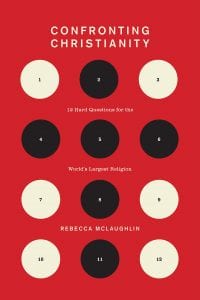 Rebecca McLaughlin, Confronting Christianity: 12 Hard Questions for the World’s Largest Religion (Crossway)
Rebecca McLaughlin, Confronting Christianity: 12 Hard Questions for the World’s Largest Religion (Crossway)
Rebecca McLaughlin asks and answers some of the most pressing questions of our cultural moment. Hasn’t science disproved Christianity? Isn’t Christianity homophobic? How can you take the Bible literally? It seems obvious that throughout her academic career and work with Veritas Forum, McLaughlin has been building relationships with skeptics, gaining an accurate understanding of the arguments against Christianity, and learning to answer biblically and boldly. Confronting Christianity equips Christian readers for the work of apologetics, not only by its content but also by its posture. Importantly, it’s an extensively researched, well-written, and accessible book to confidently put into the hands of skeptics, even to read along with them.
Judges: Jen Pollock Michel, Kori Porter, Joshua Chatraw, Erik Thoennes
Christian Living
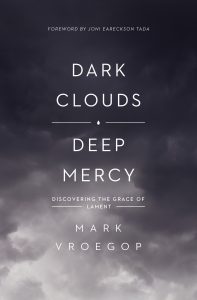 Mark Vroegop, Dark Clouds, Deep Mercy: Discovering the Grace of Lament (Crossway)
Mark Vroegop, Dark Clouds, Deep Mercy: Discovering the Grace of Lament (Crossway)
Every Christian feels the pain of living in a fallen world. And, at some point, most of us will be driven to ask, Where are you, God? and, If you love me, why is this happening? This book brings clarity to our suffering and our questions in a way that few others resources do. In it, Mark Vroegop makes the case for lament as a Christian practice—and explains how lament is itself an act of faith. The words of his book are biblically rich, perennially relevant, and, above all, hope-giving—a balm to readers’ world-weary souls. When we lament, Vroegop explains, we transition between our pain and God’s unfailing promises. It’s a message we need to hear again and again.
Judges: Megan Hill, Jasmine Holmes, Garrett Kell, Ameen Hudson
Ministry (tie)
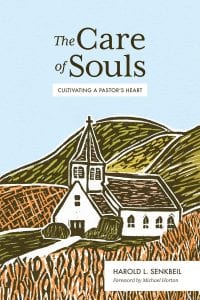 Harold L. Senkbeil, The Care of Souls: Cultivating a Pastor’s Heart (Lexham Press)
Harold L. Senkbeil, The Care of Souls: Cultivating a Pastor’s Heart (Lexham Press)
Preaching typically gets the most ink under the category of pastoral ministry, but there’s far more to shepherding a congregation than writing and executing sermons—important as that work is. Harold Senkbeil has spent five decades preaching, but also shepherding the people of God, and The Care of Souls is a product of wisdom treasured up during his half-century in local church ministry. Having grown up on a dairy farm in the Midwest, Senkbeil builds this compelling manual for loving church members around insights gained taking care of animals and crops. The result is a well-written book on shepherding that gives equal time to the care of souls and the pastor’s own pursuit of holiness. This will be a must-read for young pastors for years to come.
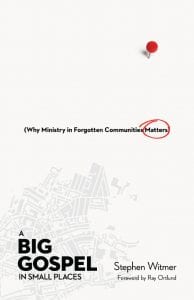
Stephen Witmer, A Big Gospel in Small Places: Why Ministry in Forgotten Communities Matters (InterVarsity)
In recent years, church planters and revitalizers have been drawn in increasing numbers to urban areas. But what about those out-of-the-way places where rural folks need to hear the gospel and sound doctrine? Stephen Witmer provides a compelling theological case for why those places matter and offers a keen, biblically sound strategy for the small places. Focusing on the city may seem strategic, but Witmer shows how Jesus is often unstrategic. Witmer argues, in beautiful prose, why ministry in the country remains an urgent and fulfilling necessity.
Judges: Jeff Robinson, Mike Bullmore, Jason Cook, Phil Newton
History & Biography
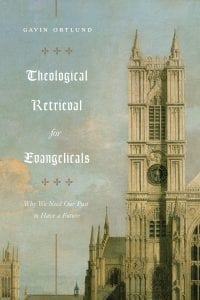 Gavin Ortlund, Theological Retrieval for Evangelicals: Why We Need Our Past to Have a Future (Crossway)
Gavin Ortlund, Theological Retrieval for Evangelicals: Why We Need Our Past to Have a Future (Crossway)
The roots of evangelicalism run deep. But for many of us, especially those rising into adulthood, its contemporary expressions can feel disturbingly shallow. Convinced of the faith but unsatisfied by a perceived lack of history, tradition, or substance, many Christians now look beyond the low-church traditions of evangelicalism in search of something more. But as Gavin Ortlund brilliantly demonstrates in this work, evangelicals are the rightful heirs of the greatest traditions of church history. Within these pages, readers will encounter the voices of Boethius and Anselm and Irenaeus and Aquinas, as Ortlund draws from the depths of these and other beloved saints and allows them to speak to us anew. But beyond the ground covered, the true value of this work is its introduction to Ortlund’s project of theological retrieval, which opens vistas of Christian tradition to evangelicals young and old.
Judges: Josh Wester, Sam Allberry, Hunter Beaumont, Tina Boesch
Children’s
Andrew Wilson and Helena Perez Garcia (illustrator), Sophie and the Heidelberg Cat (Crossway) 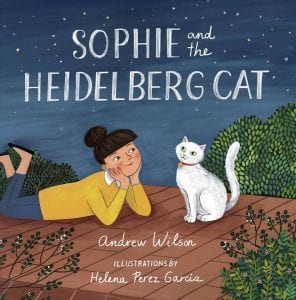
There is no shortage of Christian books designed to teach theology to children, but too often these books fail to hold a child’s attention and capture their imagination. Thanks to clever writing, a whimsical plot, and lovely illustrations, Sophie and the Heidelberg Cat will engage both children and adults. Kids can experience guilt and confusion when they’ve sinned or disappointed others. This book clearly helps us understand that we all sin and need a Savior who has defeated sin. What a great comfort to be taught at a young age that we belong to Jesus and can receive forgiveness! And who wouldn’t want to converse with a talking cat?
Judges: Betsy Childs Howard, Trillia Newbell, Erik Raymond, Sarah Eekhoff Zylstra
First-Time Author
Kathryn Butler, Between Life and Death: A Gospel-Centered Guide to End-of-Life Medical Care (Crossway) 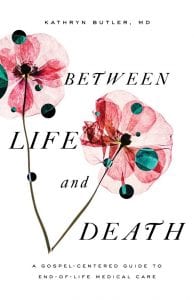
You may not need this book right now, but there’s a good chance sooner or later you’ll want to learn from Butler’s expertise on end-of-life care. With her medical training on display, keen attention to Scripture, and deep compassion, she examines what happens when medical technology and intervention do not preserve life but prolong death. Be careful, as this book may move you to tears. She gives you the right questions to ask of God and your loved ones as you search together for clarity and peace in a time of suffering. Anchored to the hope of the gospel, Butler shows what Christian discipleship might look like in some of the most agonizing moments in life. We live for Jesus, and we die in Jesus.
Judges: Collin Hansen, Irwyn Ince, Christine Hoover, Jaquelle Ferris
Arts & Culture
Andrew Peterson, Adorning the Dark: Thoughts on Community, Calling, and the Mystery of Making (B&H) 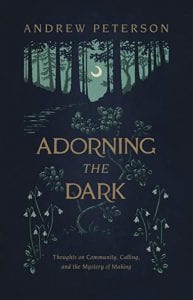
Adorning the Dark is a beautiful and yet peculiar book. On paper, it shouldn’t work. It breaks most of the rules. It’s part memoir, part creative manual, and part confession. In anyone else’s hands (save perhaps Stephen King, Annie Dillard, and a few other giants), this book wouldn’t work. Yet in Andrew Peterson’s hands and on Andrew Peterson’s paper it does. Like his other projects, he has a story to tell that we want and, often, that we need to hear. And maybe that’s why this is such a captivating book. Peterson’s story is unique, and yet he uses his life to help us understand our own—giving us a vision for how our gifts might also adorn the dark with light.
Judges: Brett McCracken, Ryan Lister, Caroline Cobb, Trevin Wax
Bible Study & Devotional Literature
Kristie Anyabwile (ed.), His Testimonies My Heritage: Women of Color on the Word of God (The Good Book Company) 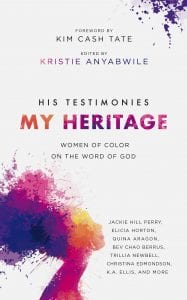
In an age of division, the contributors to this book showcase the unity of our common hope and heritage: the Word of God. The various authors offer thoughtful gospel reflections and applications as they explore the beauty and truth found in Psalm 119. Full of wisdom and insight, these essays and poems magnify voices of women that too often are not heard in broader evangelical circles. Their faithful use of Old Testament and New Testament writings provides a balanced grounding for presenting the gospel that both unifies and renews the church, and inspires the grace and resilience necessary to navigate contemporary trials and trends.
Judges: Melissa Kruger, Vanessa Hawkins, Katie McCoy, Amy Whitfield

































